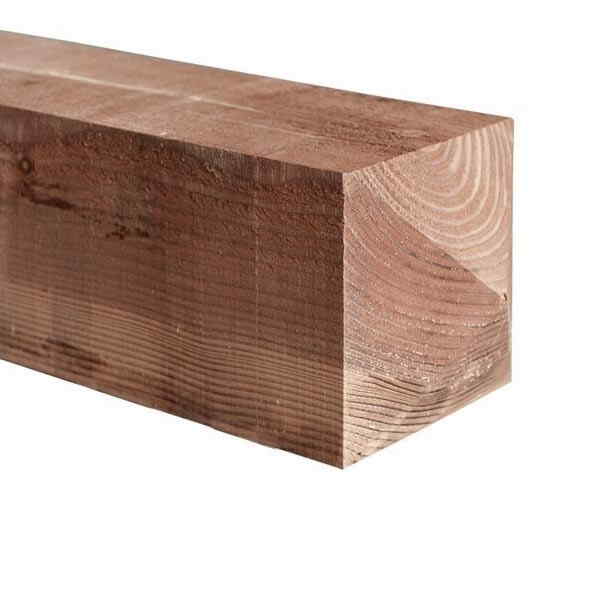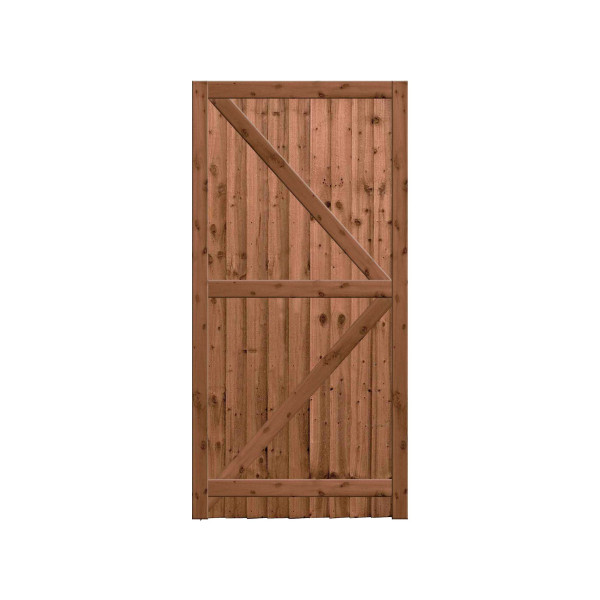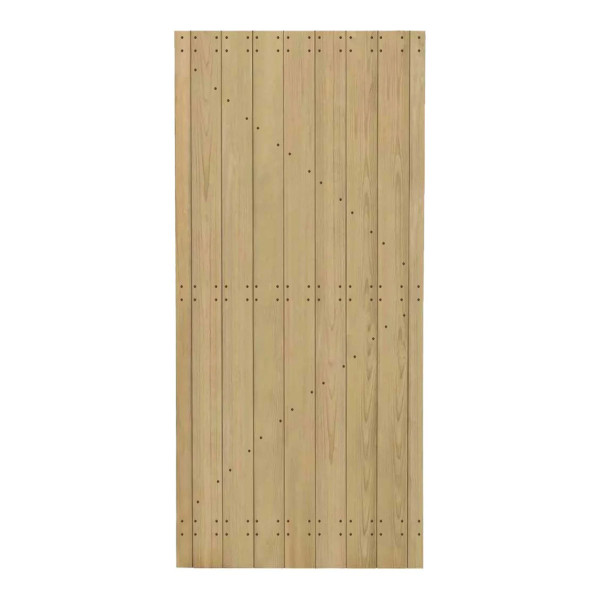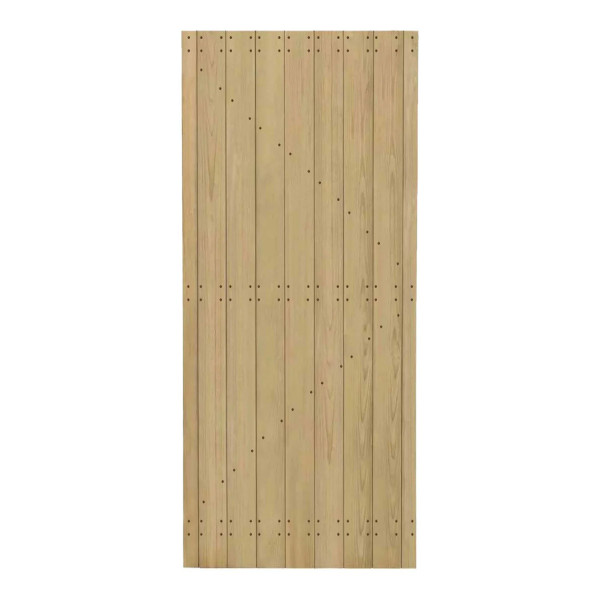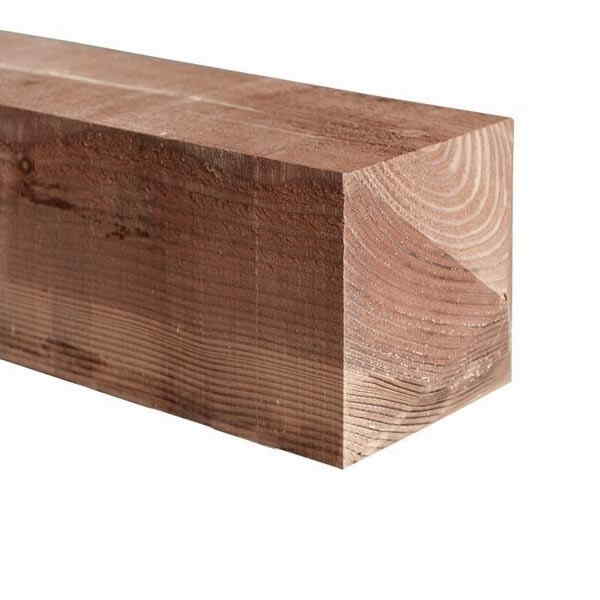Garden Gates
Whether you're a DIY enthusiast, a homeowner looking to upgrade your exterior, or a landscaper seeking reliable products for your clients, East Coast Fencing offers a comprehensive range of high-quality garden gates to suit your needs. With options like Tongue and Groove, Picket, and Feather Edge Gates, our collection promises both functionality and aesthetic appeal. Our dedication to quality is reflected in our 15,000+ 5-star reviews, and we are proud to offer free delivery on orders over £99 when you shop online with us.
Our garden gates are meticulously crafted to enhance the beauty and security of your property. Each style has been designed with care, ensuring you receive a product that not only looks great but also stands the test of time. Whether you're installing a gate for privacy, security, or purely decorative purposes, our selection has something to offer everyone. At East Coast Fencing, we believe in providing products that deliver exceptional value and lasting satisfaction.
Delivered by East Coast Fencing, our garden gates are perfect for transforming any outdoor space. Our commitment to customer satisfaction ensures a seamless shopping experience from start to finish, with expert advice available to guide your choices. Explore our range today and discover why so many customers trust us for their fencing solutions.
Tongue & Groove Gates
Tongue and Groove Gates are a popular choice among those who value privacy and durability. These gates are constructed with interlocking boards that create a solid panel, offering a high level of privacy and noise reduction. The seamless design not only looks sleek but also adds an extra layer of security, making it an ideal choice for front or back gardens.
The robust construction of tongue and groove gates ensures they withstand the elements, maintaining their appearance and functionality over time. Made from high-quality timber, these gates are treated to resist rot and decay, ensuring they remain a low-maintenance option for homeowners and landscapers alike. Their strength and stability make them a long-term investment for any property.
In addition to their practical benefits, Tongue and Groove Gates offer a classic aesthetic that complements a variety of home styles. Whether your property has a traditional or modern look, these gates can be customised to match, with options for different finishes and colours. This versatility makes them a timeless addition to any garden.
Installation of Tongue and Groove Gates is straightforward, especially for DIY enthusiasts. With the right tools and guidance, you can achieve a professional finish that enhances your property's curb appeal. We provide clear instructions and support to help you install your gate with ease, ensuring a secure and precise fit.
Maintenance of these gates is minimal. Regular cleaning and occasional treatment with wood preservative will keep them looking their best for years to come. This low-maintenance requirement is perfect for busy homeowners and professionals who value both quality and convenience.
For those seeking a dependable and attractive gate solution, Tongue and Groove Gates from East Coast Fencing are a top choice. Experience the fusion of style and functionality by adding one of these gates to your property today.
Feather Edge Gates
Feather Edge Gates are renowned for their rustic charm and practicality. Crafted with overlapping vertical boards, these gates provide excellent coverage and strength, making them suitable for a variety of applications. They are particularly effective for creating a natural boundary that blends seamlessly with your garden's landscape.
The design of feather edge gates allows for flexibility, making it easy to adjust the height and width to fit your specific requirements. This adaptability is beneficial for homeowners who need a tailored solution for their fencing needs, ensuring each gate is perfectly suited to its environment.
Durability is a key feature of Feather Edge Gates. Constructed from high-quality timber, they are built to withstand harsh weather conditions while maintaining their integrity. Our gates are treated to prevent rot and insect damage, guaranteeing they remain a reliable fixture in your garden.
Aesthetically, Feather Edge Gates offer a traditional look that enhances the natural beauty of outdoor spaces. The rustic finish adds character and warmth, making them a popular choice among those who wish to create a welcoming and homely atmosphere. Available in various finishes, these gates can be customised to match your garden's design.
Installation of Feather Edge Gates is user-friendly, with comprehensive instructions provided to guide you through the process. Whether you're a seasoned professional or a DIY novice, you can achieve a secure and attractive installation with minimal effort. Our support team is available to assist with any queries you may have.
For ongoing maintenance, Feather Edge Gates require periodic cleaning and treatment with wood preservative to retain their appearance and strength. This simple upkeep ensures your gates continue to enhance your property's look and function long into the future.
Picket Gates
Picket Gates are a timeless choice that bring charm and elegance to any garden. Known for their distinctive pointed tops, these gates are perfect for those who wish to add a touch of classic style to their property. They are versatile and can be used for both front and rear garden entrances.
The open design of picket gates provides a welcoming feel while still defining your property's boundaries. This style is particularly popular for gardens where visibility is desired, allowing you to showcase your outdoor space while maintaining a degree of separation.
Constructed from high-quality materials, Picket Gates from East Coast Fencing are designed to last. Each gate is treated to resist weathering and decay, ensuring it remains a beautiful and functional part of your garden for years to come. The robust construction provides peace of mind, knowing your gate can withstand the elements.
In terms of aesthetic appeal, Picket Gates are available in a variety of finishes and colours, allowing you to customise your gate to suit your personal taste and home style. Whether you prefer a natural wood look or a brightly painted finish, these gates offer endless possibilities.
Installing a Picket Gate is a straightforward task that can be completed by homeowners and professionals alike. With detailed instructions and all necessary fixtures included, you can achieve a flawless finish that enhances your garden's appeal. Our team is on hand to provide advice and support throughout the installation process.
To keep your Picket Gates looking their best, they require minimal maintenance. Regular cleaning and occasional repainting or staining will ensure they remain a vibrant and attractive feature of your property. This easy upkeep makes them an ideal choice for those seeking a stylish yet practical garden gate solution.
Gate Posts
Gate Posts are an essential component of any garden gate installation, providing the necessary support and stability for your chosen gate. East Coast Fencing offers a range of high-quality gate posts designed to complement our selection of gates, ensuring a secure and professional installation.
The importance of choosing the right gate posts cannot be overstated. They are responsible for supporting the weight of the gate and ensuring it operates smoothly. Made from durable materials, our gate posts are designed to withstand the rigours of daily use while maintaining their integrity over time.
Our gate posts are available in various sizes and styles, allowing you to select the perfect match for your gate and garden design. Whether you're installing a Tongue and Groove, Feather Edge, or Picket Gate, we have the ideal post to suit your needs. Each post is treated to resist rot and weather damage, ensuring long-lasting performance.
Installation of gate posts is a critical step in the gate-fitting process. Proper alignment and securing of the posts ensure your gate functions correctly and remains stable. We provide detailed instructions and guidance to help you achieve a precise and sturdy installation, whether you're a DIY enthusiast or a professional landscaper.
For optimal performance and aesthetics, it's important to consider the finish of your gate posts. Matching the post finish to your gate creates a cohesive look that enhances your property's overall appearance. Our range of posts includes various finishes to complement your style preferences.
Maintenance of gate posts is simple, requiring only occasional cleaning and treatment to preserve their appearance and strength. This routine care ensures your gate posts continue to support and enhance your garden gate for many years to come.
At East Coast Fencing, we understand the significance of well-crafted gate posts in achieving a successful gate installation. Our commitment to quality and customer satisfaction guarantees that you'll find the perfect solution for your needs in our range of gate posts. Explore our selection today and secure the foundation for your garden's entrance.
Wooden Garden Gates
Wooden gates are more than just a functional element of your property. They are a statement of style, a symbol of security, and a significant contributor to your home's curb appeal.
Choosing the right wooden gate, however, can be a daunting task. With a myriad of styles, sizes, and finishes available, it's easy to feel overwhelmed.
That's where East Coast Fencing comes in.
As a trusted supplier of garden fencing to both trade and public, we understand the importance of quality and durability. We also appreciate the aesthetic value that a well-chosen wooden gate can add to your property.
In this comprehensive guide, we aim to demystify the world of wooden gates. We'll delve into the details of different types of gates, including Tongue and Groove Gates, Feather Edge Gates, Picket Gates, and the all-important Gate Posts.
We'll also explore the benefits of wooden driveway gates, offering tips on how to measure and select the right gate for your driveway.
But we won't stop there.
We'll provide insights into the craftsmanship behind our products, and offer advice on installation and maintenance to ensure the longevity of your wooden gate.
We'll even touch on the environmental impact of choosing wooden gates, and why customer service matters when making your purchase.
Whether you're a homeowner looking to enhance your property's aesthetic appeal and security, or a professional landscaper seeking reliable, high-quality fencing solutions, this guide is for you.
So, let's embark on this journey together. Let's explore the world of wooden gates and discover how the right choice can transform your property.
Welcome to our comprehensive guide to wooden gates.
The Importance of Choosing the Right Wooden Gates
Wooden gates do more than mark the boundary of your property. They play a crucial role in defining the first impression of your home. A well-selected gate elevates curb appeal, adding charm and sophistication.
Beyond aesthetics, the right wooden gate enhances security. It serves as a formidable barrier, deterring potential intruders. Quality construction matters, ensuring your property remains safe.
Choosing a gate requires careful consideration. The style, size, and design should align with your home's architecture. A cohesive look ties the entire property together, adding value.
Durability is another critical factor. The right gate withstands weather extremes and daily use without deteriorating quickly. Investing in a quality wooden gate can save money on repairs and replacements in the future.
In conclusion, selecting the right wooden gate is essential for both appearance and security. By investing in a well-made, aesthetically pleasing gate, you enhance both the beauty and safety of your home. A wise choice ensures satisfaction for years to come, marking it as a smart investment for any homeowner.
What Are Wooden Gates and Why Choose Them?
Wooden gates are sturdy structures made from various timber types. They are used to secure entry points on properties. Their natural look and feel set them apart from other materials.
Wooden gates offer unmatched versatility. They come in various styles to suit different architectural designs. This adaptability means they complement both modern and traditional homes beautifully.
Durability is a key benefit. When treated properly, wooden gates resist weathering and decay. Proper maintenance ensures a long lifespan, making them a wise investment.
There are numerous reasons to choose wooden gates:
- Aesthetic Appeal: Natural grain and color enhance exterior beauty.
- Customizable: Easily tailored to specific preferences.
- Eco-Friendly: Made from renewable resources.
- Robust Security: Provides a solid barrier to unauthorized access.
- Value Addition: Increases property value with their visual appeal.
Unlike metal or vinyl, wood is an eco-friendly option. Choosing a sustainable timber source promotes environmental responsibility. This aligns with the values of many modern homeowners.
In conclusion, wooden gates are a versatile, durable, and eco-friendly choice. Their natural beauty and robust security features make them an ideal option. With proper care, they stand the test of time and add lasting value to any property.
East Coast Fencing: Your Trusted Supplier of Wooden Gates
When it comes to wooden gates, trust is crucial. East Coast Fencing has built a stellar reputation. Homeowners consistently praise our quality and service.
Our gates are crafted with precision. We source the finest materials ensuring long-lasting durability. Each gate combines functionality with aesthetic appeal.
Customer satisfaction is our priority. Over 10,000 positive reviews speak volumes. A Trustpilot rating of 4.9 reflects our commitment.
We understand what homeowners need. Our team provides expert advice throughout your purchase. From selection to delivery, we ensure a smooth process. East Coast Fencing stands by your side with reliable service.
Understanding the Different Types of Wooden Gates
Choosing the right type of wooden gate is crucial. Each style offers unique benefits tailored to different needs. It's essential to understand what each type can offer.
Wooden gates come in various styles like Tongue and Groove, Feather Edge, and Picket Gates. Each has its own charm and functionality. Knowing the differences helps in making an informed choice.
These gates not only provide security but also enhance your property's curb appeal. Whether you're prioritizing privacy or aesthetics, there's a gate style for you. Let's delve deeper into these popular choices.
Tongue and Groove Gates
Tongue and Groove Gates are prized for their solid construction. They feature interlocking boards for a seamless look and added stability. This design offers superior privacy and noise reduction, making them an excellent choice for homeowners seeking a peaceful environment.
These gates are versatile and can complement various architectural styles. They can be customized to fit any space. Choose from a range of finishes and sizes to match your home.
Here are some benefits of Tongue and Groove Gates:
- Provides excellent privacy and soundproofing
- Offers a sleek, modern appearance
- Durable in various weather conditions
Their design ensures longevity and resistance to warping. Maintenance is minimal with occasional cleaning and inspection. Staining or painting can enhance their durability and match your aesthetic preferences.
Installation is straightforward but requires attention to detail. Proper alignment ensures optimal functionality. It's advisable to consult professionals if you're unsure about the process.
Consider Tongue and Groove Gates for a blend of style, security, and privacy. Their robust design offers peace of mind knowing your property is well-protected.
Feather Edge Gates
Feather Edge Gates bring a rustic charm to any property. Their overlapping boards not only create a classic look but also add structural integrity. This design is both aesthetically pleasing and functional.
The rugged appearance suits country-style homes and traditional settings. They can be painted or stained to match specific exterior themes. These gates seamlessly blend with natural surroundings.
Benefits of Feather Edge Gates include:
- Strong weather resistance
- Easy to customize and install
- Cost-effective without sacrificing quality
The slats provide strength, making them ideal for various climates. They require minimal maintenance to retain their appeal. Regular checks and treating the wood can prolong their life.
Installation can be a rewarding DIY project or handled by professionals. A little guidance can ensure they are perfectly positioned and robustly supported.
Feather Edge Gates are perfect if you seek an affordable, durable option. They maintain a heritage look while enhancing property boundaries. Their combination of style and function is hard to beat.
Picket Gates
Picket Gates are iconic for their timeless appeal. They embody a sense of nostalgia and charm that fits perfectly with cottage-style homes. Their spaced slats offer both visibility and security, an ideal blend for garden boundaries.
Often found in white, they can be painted to suit personal preferences. This flexibility allows them to complement a wide range of landscapes and home styles.
Key advantages of Picket Gates are:
- Classic, inviting appearance
- Lightweight and easy to install
- Safe for children and pets
The lightweight design makes installation manageable for most homeowners. They are easy to handle, even in less favorable weather conditions.
Properly maintained Picket Gates can last many years. Regular painting or staining helps protect them from elements. This upkeep ensures they remain an inviting part of your home landscape.
These gates enhance both form and function. They symbolize a welcoming atmosphere while serving practical purposes like property delineation and safety. Perfect for those who prioritize aesthetics and light security.
Gate Posts: The Backbone of Your Wooden Gates
Gate posts are critical to your gate’s longevity. They offer stability and support for all gate styles. Without sturdy posts, even the best gates can falter.
Selecting the right material for your gate posts is vital. Timber posts are popular for their natural look. They blend well with various wooden gate types.
Consider these factors when choosing gate posts:
- Durability and weather resistance
- Compatibility with your chosen gate style
- Proper installation and alignment
Proper installation ensures that they bear weight effectively. Incorrect placement can lead to sagging and structural issues. Professionals can provide guidance or take charge of the installation.
For a cohesive look, match your gate posts to your gate's material and style. Metal or concrete posts are options if you seek enhanced durability. Regardless of choice, maintenance is key.
With the right gate posts, your gates function smoothly and stand strong against the elements. They underpin the overall security and aesthetics of your entrance.
Wooden Driveway Gates: Combining Aesthetics and Security
Wooden driveway gates offer a perfect blend of beauty and safety for your home. Their sturdy build enhances security while enriching your property's visual appeal. Driveway gates are an inviting feature that sets the tone for visitors.
A wide range of styles is available to suit any home architecture. From traditional to modern, wooden driveway gates can be customized to reflect personal tastes. Choose options that complement your landscaping and fencing for a cohesive look.
When selecting wooden driveway gates, consider their functional benefits:
- Enhanced security against unauthorized access
- Increased privacy for personal space
- Boosted curb appeal for property value
These gates serve as a strong deterrent against intrusions, providing peace of mind. Their robust structure makes it difficult for outsiders to enter uninvited. In addition, they provide a private environment free from prying eyes.
Wooden driveway gates are also energy-efficient. By adding weight and density to entry points, they help maintain a stable internal temperature. This can lead to lower heating and cooling costs over time.
Incorporating smart technology enhances the convenience of wooden driveway gates. Automated systems can ease daily operations while maintaining security standards. With the push of a button, these gates can open and close smoothly, offering both ease and protection.
How to Measure and Select the Right Wooden Gates for Your Driveway
Finding the right wooden gates for your driveway requires careful measurement and selection. Precise dimensions ensure the gates fit perfectly, providing both functionality and aesthetic value. A poorly fitted gate can compromise security and curb appeal.
Start by measuring the width of your driveway. This will determine the overall width needed for the gates. Consider potential obstacles such as curbs or landscaping that may affect installation. It's crucial to account for hinges and latches in your measurements.
Next, decide on the height of your gates. Height can influence both privacy and the overall appearance of your property. Taller gates offer more privacy and security, while shorter gates can create a welcoming look.
When choosing gates, consider the following factors:
- Material: Opt for durable wood species like cedar or oak.
- Style: Pick a design that complements your property's architecture.
- Functionality: Decide if you need automated or manual operation.
Remember, the right gate should harmonize with your fencing. It should act as a natural extension of your property's existing aesthetic. By ensuring measurements are accurate and style choices are thoughtful, you can seamlessly enhance your home's entrance with wooden driveway gates.
The Craftsmanship Behind East Coast Fencing's Wooden Gates
At East Coast Fencing, craftsmanship is at the heart of our wooden gates. Our artisans bring years of expertise, crafting each gate with meticulous attention to detail. We believe that high-quality craftsmanship translates into gates that are not only beautiful but also durable.
Each wooden gate begins as carefully selected timber, chosen for its strength and natural beauty. Our craftsmen shape and join the wood, ensuring precision in every cut. This dedication to quality ensures that each gate we produce meets our high standards.
Attention to detail extends to every aspect, from the carving of intricate designs to the smooth finish. Our gates are treated to withstand the elements, ensuring they remain stunning in any weather condition. This process enhances both durability and visual appeal, protecting the wood from pests and rot.
We offer customization options to suit any style, whether it's for a traditional garden or a modern driveway. Our team works closely with you to create a gate that perfectly matches your vision. At East Coast Fencing, craftsmanship and customization come together to deliver wooden gates that enhance the beauty and security of your home.
Installation and Maintenance: Ensuring the Longevity of Your Wooden Gates
Proper installation and ongoing maintenance are essential for maximizing the lifespan of your wooden gates. A well-installed gate provides security, aesthetics, and convenience, while maintenance keeps it functioning smoothly. Investing time in these areas guarantees that your gate remains an asset to your property.
For installation, choosing the right tools and techniques is critical. This ensures that your gate is securely fixed and operates correctly. Whether you choose professional help or a DIY approach, the process must be thorough and precise to avoid issues later.
Maintaining your wooden gates involves routine checks and treatments. Exposure to weather can lead to wear and tear, but regular attention can prevent this. Addressing minor repairs promptly will save on significant repairs in the long run.
Consider these maintenance steps to keep your gates in excellent condition:
- Regularly inspect for damage like cracks or splits.
- Clean the gates to remove dirt and debris.
- Apply a wood preservative or sealant to protect against moisture.
With these practices, your wooden gates will not only look beautiful but will also serve you reliably for years to come.
Installation Tips for DIY Enthusiasts and Professionals
Installing wooden gates can be a rewarding project for DIY enthusiasts. Before starting, ensure you have the right tools and materials. Accurate measurements and level ground are crucial for a stable installation.
Begin by marking the positions for your gate posts. Dig post holes deep enough for stability, typically a third of the post length. Concrete these posts, ensuring they're perfectly vertical, then let them set.
Once the gate posts are secure, hang your gates using robust hinges. Test their movement, making adjustments as needed. Proper alignment is vital for smooth operation and to prevent future issues.
Regular Maintenance and Care for Your Wooden Gates
To extend your wooden gates' lifespan, regular maintenance is essential. Start by inspecting them every few months for any signs of damage. Look for issues like warping, rust on hinges, or insect damage.
Clean your gates periodically to remove accumulated dirt. A gentle wash with soap and water works well. Avoid harsh chemicals that could strip protective coatings.
Reapply protective treatments yearly. This helps shield the wood from moisture and UV damage. By maintaining your gates diligently, you ensure they remain as a durable and attractive feature of your property.
Enhancing Your Wooden Gates with Accessories and Smart Technology
Enhancing wooden gates with accessories and smart technology is a great way to add convenience and security. Modern advancements have revolutionized how we interact with our home's entryways. These enhancements can provide ease of access and elevate the functionality of your gates.
Smart gate technology includes features like remote controls, keypads, and smartphone integration. These allow you to manage gate operations from anywhere. Such technology adds a layer of security by offering real-time alerts and access logs.
In addition to smart tech, accessories play a crucial role in gate functionality and longevity. Some popular additions include:
- Locks and latches for enhanced security
- Decorative hardware for aesthetic appeal
- Gate stops to control gate movement
These accessories not only improve your gate's operation but can also enhance its visual appeal. By investing in these enhancements, your gates can be both beautiful and highly functional. Embracing technology and accessories transforms your wooden gates into modern, efficient barriers that enhance your lifestyle.
The Environmental Impact of Choosing Wooden Gates
Choosing wooden gates can have a positive impact on the environment. Wood is a renewable resource, making it an eco-friendly option. When sourced responsibly, it helps preserve forest ecosystems and promotes sustainability.
Sustainable wooden gates offer several environmental benefits. They have a lower carbon footprint compared to metal or vinyl options. Additionally, wooden gates can be recycled or repurposed at the end of their life, reducing waste.
Using sustainable materials not only benefits the environment but also aligns with modern eco-conscious living. This choice reflects a commitment to greener, more responsible living practices. By opting for wooden gates, homeowners can contribute to a healthier planet while enjoying a durable and versatile product.
Why Customer Service Matters When Purchasing Wooden Gates
Excellent customer service is crucial when buying wooden gates. It ensures a smooth purchasing experience and provides valuable support. A supplier with strong customer service can guide you in making informed decisions about your gate needs.
Reliable customer service offers peace of mind, especially when dealing with installation questions or product issues. Helpful and timely responses can prevent common frustrations. This level of support is essential for the overall satisfaction of homeowners.
Choosing a supplier with a reputation for outstanding customer service, like East Coast Fencing, can enhance your experience. It's not just about the product; it's also about the care and service you receive. This comprehensive support underscores the long-term value of your investment.
Conclusion: The Lasting Value of Quality Wooden Gates
Investing in quality wooden gates brings both beauty and security to your home. They enhance curb appeal and improve property value. Selecting durable and well-crafted gates ensures you enjoy these benefits for years.
Wooden gates offer a timeless charm that complements various architectural styles. They are versatile, easy to customize, and blend seamlessly with your landscape. This flexibility allows homeowners to personalize their spaces effectively.
Beyond aesthetics, the right wooden gates provide security and privacy. They create a defined boundary, deterring unwanted access. This assurance enhances the overall sense of safety and peace at home.
Moreover, with the right supplier, such as East Coast Fencing, you receive reliable service and high-quality products. Their expertise, coupled with outstanding customer support, ensures a satisfying purchase journey. Overall, choosing the right wooden gates is a valuable and worthwhile decision for any homeowner.
FAQs About Wooden Gates
What are the different types of wooden gates available?
Wooden gates come in various styles to match diverse preferences. Popular types include Tongue and Groove Gates, known for their sleek appearance and strength. Feather Edge Gates offer a rustic charm, while Picket Gates are ideal for cottage-style aesthetics.
How do I choose the right wooden gate for my home?
Consider factors like style, size, and function when selecting a gate. Determine your aesthetic preferences and what complements your home’s architecture. Evaluate the gate’s primary purpose—whether for privacy, security, or decorative appeal.
How do I maintain my wooden gates to ensure longevity?
Regular maintenance is crucial to extend the lifespan of wooden gates. Clean them periodically and check for signs of wear. Apply protective sealants or stains to guard against weathering and moisture.
Can wooden gates be customized to fit my specific needs?
Absolutely. Wooden gates are highly customizable. From size and color to detailing and hardware, you can personalize your gate to meet your exact needs. Many suppliers, including East Coast Fencing, offer bespoke options.
Are wooden gates a secure choice for driveways?
Wooden gates provide excellent security when properly installed. They create a physical barrier, enhancing privacy and limiting access. For added protection, consider options with reinforced panels or integrated locks.
What makes East Coast Fencing a reliable supplier for wooden gates?
East Coast Fencing stands out due to its commitment to quality and customer satisfaction. With over 10,000 five-star Trustpilot reviews, they offer a trusted service. Their expertise and range of high-quality products ensure a seamless purchasing experience.



